Innovating for sustainable growth
Sustainability is a core element of the Group’s strategy. Focus is on resource-efficient products, engaging employees in sustainability objectives and increasing awareness of the positive and negative impacts across the value chain.
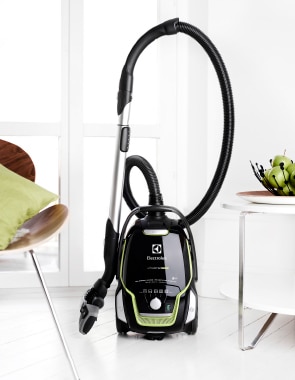
|

|
|---|
Achieving the Group’s vision of sustainability leadership is crucial to realizing the business strategy. The objective is to develop smarter, more accessible, resource-efficient solutions that meet people’s needs and improve their lives.
Sustainability priorities target three areas:
- Products, services and markets – to sustainably provide resource-efficient products and services that are accessible to more people around the world.
- People and operations – to engage employees in continually improving operations for the safety of people, integrity of the company and the good of the environment.
- Stakeholders and society – to build trust and connect with stakeholders across the value chain to achieve successful sustainability outcomes.
Sustainability leadership requires a clear vision, strong organizational alignment and global commitment.
In 2013, a 2020 goal was set to cut the Group’s climate impact by 50% relative to 2005 production. The reduction in carbon emissions is to be implemented in production, transportation, use of greenhouse gases and in the use phase of products.
With this goal, Electrolux aims to be among the leaders in product-energy efficiency in each product segment and market. Electrolux is collaborating with partners along the value chain to further reduce carbon emissions outside the Group’s direct control.
Products, services and markets
The Group’s most significant environmental impact is carbon dioxide emitted by consumers during product use. Accordingly, Electrolux places great importance on increased product efficiency, and sustainability is one of four prioritized areas in product development.
At least one-third of the product development spend is environmentally related and include energy and water efficiency as well as design-for-recycling.
A Green Range performance indicator of the most efficient products in each sector allows comparability of environmentally leading products against the total range.
A key challenge is to meeting increasing demand for energy and cost-efficient appliances by transfering innovation rapidly from the premium to the mass-market segment.
To build increased consumer awareness of the value of efficient appliances, Electrolux focuses on efficiency and other sustainability benefits in marketing across the Group. During the year, the Group conducted a market survey in Australia, Brazil, France, China, Germany and the US to gauge consumers’ perception of Electrolux as a sustainable brand and better understand the importance of environmental factors in purchasing behavior. Results showed that two-thirds of consumers ranked environmental impact as one of the three most important factors when purchasing household appliances.
Global Green Range
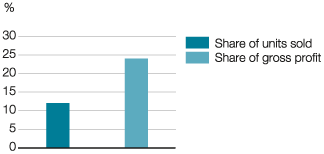
People and operations
The Electrolux Foundation, the Group’s principle of conduct, covers three areas: Respect and Diversity, Ethics and Integrity, and Safety and Sustainability.
In 2013, Electrolux launched a group-wide program for ISO 9001 (quality), ISO 14001 (environment) and OHSAS 18001 (health and safety) certification. The objective is to leverage the certification program for improving governance and sharing best practice.
An employee engagement program for The Purpose, which aims to build an understanding of the value Electrolux creates beyond financial and market objectives, helps make societal and environmental value creation a core part of the employee mindset. Around 2,400 employees have participated in workshops.
The Electrolux Code of Conduct has been updated to better reflect the UN Guiding Principles on Business and Human Rights and the Group’s human right risk assessment. Approval and launch is planned for 2014.
The roll-out of the Ethics Program continued, planned for completion in 2014.
Electrolux continued to focus on energy use and carbon emissions in manufacturing. Both relative and absolute targets have been set.
The 2015 reduction goal of 15% is based on 2011 production level. In 2013, the Group achieved a 10% relative improvement. In absolute terms, this means an increase in energy use by 11% due to acquisitions and start-up of new factories.
Stakeholders and society
Electrolux endeavors to be a responsible, open and honest societal partner and build trust, partnership and engagement with stakeholders along the value chain. As part of the company’s responsible sourcing initiatives, Electrolux held training sessions for some 190 representatives from suppliers in Asia, the Middle East and Latin America to engage them in the Group’s sustainability work.
As a signatory of the UN Global Compact, Electrolux committed to promoting the ten principles covering human rights, labor standards, environment and anti-corruption along its value chain.
In 2013, Electrolux participated in UNICEF’s network on children’s rights and business principles as well as the Swedish Network for Business and Human Rights, and arranged a seminar with industry counterparts about conflict minerals.
The company keeps track of trends and actively monitors issues through dialog with stakeholders. Learnings are shared with relevant functions and considered as part of the company’s continuous improvement.
In 2013 and for the seventh consecutive year, Electrolux was recognized as leader of its industry sector in the prestigious Dow Jones Sustainability World Index (DJSI). This positions the Group within the top 10% of the 2,500 largest companies for social and environmental performance.
Responsible sourcing
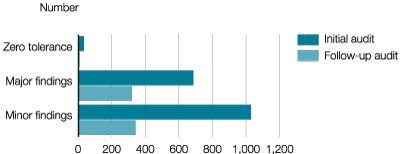
CEO Statement
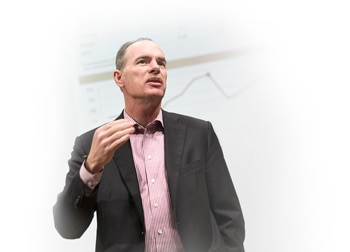
In 2013 we continued to deliver above our growth target and delivered 4.5% in organic sales growth.
CEO Statement

I'm convinced that raising product efficiency for the growing middle class is where long-term shareholder value creation lies.
Our products
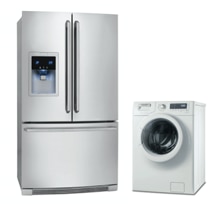
Electrolux is the only appliance manufacturer in the industry to offer complete solutions for both consumers and professionals. The focus is on innovative and energy-efficient products in the premium segments.
Sustainability
Achieving the Group's vision of sustainability leadership is crucial to realizing the business strategy. The objective is to develop smarter, more accessible, resource-efficient solutions that meet people's needs and improve their lives. Read the comprehensive sustainability performance review.
Awards & recognition
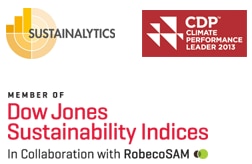
Financial Reporting
Net sales for the Electrolux Group in 2013 amounted to SEK 109,151m, as against SEK 109,994m in the previous year. The organic sales growth was 4.5%, while currencies had an impact of -5.3%.
